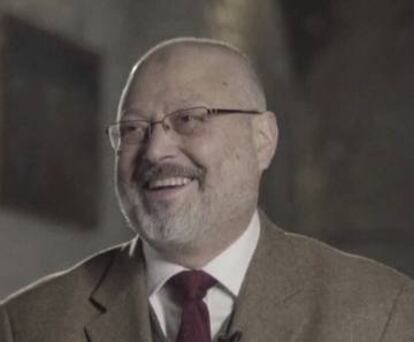Spain not stopping arms sales to Saudi Arabia over Khashoggi killing
Government expresses consternation at the journalist’s death but cites Saudi prosecutors’ information

Spain has not joined the group of European countries most critical of the death of dissident journalist Jamal Khashoggi, who went missing on October 2 after walking into Saudi Arabia’s consulate in Istanbul.
On Saturday, the Spanish government issued a statement expressing “consternation” over Khashoggi’s death. However, Madrid’s analysis was based on information shared by Saudi prosecutors, and did not openly question Riyadh’s shifting versions of events. On Sunday, a joint release by Paris, Berlin and London said instead that the journalist’s death needs “to be backed by facts considered to be credible.”

“The government of Spain is dismayed at the preliminary information from the Saudi prosecution services regarding the death of Saudi journalist Jamal Khashoggi at the Consulate of the Kingdom of Saudi Arabia in Istanbul, and expresses its most sincere condolences to his family and loved ones,” said the Spanish executive in a statement.
In its Saturday release, the Socialist Party (PSOE) government of Pedro Sánchez said that “the government of Spain joins the call by United Nations Secretary General Antonio Guterres for a prompt, thorough and transparent investigation into the circumstances of Mr Khashoggi’s death and full accountability for those responsible.”
Arms sales
For now at least, Spain is not freezing its arms sales to Saudi Arabia. Germany said on Sunday that it would halt its own exports, although neither France nor Britain have seconded this move. Germany is the fourth-biggest exporter of weapons to Saudi Arabia, behind the US, Britain and France.
It is very likely that growing evidence of the Saudi regime’s involvement will reopen the controversy over Spain’s sale of weapons to Riyadh
It is very likely that growing evidence of the Saudi regime’s involvement in the death of the Washington Post columnist will reopen the controversy over Spain’s sale of weapons to Riyadh. In September, Defense Minister Margarita Robles attempted to halt the sale of 400 guided missiles due to concerns over their potential use in the Yemen war. But the prime minister ordered the sale to proceed after Riyadh threatened to retaliate by ending a €1.8-billion contract with Spain involving the construction of warships at a state-owned shipyard in Andalusia, where workers marched to defend their jobs.
Saudi Arabia was Spain’s third-best weapons customer in the 2013-2017 period, and there are strong trade ties between both countries. A Spanish-Saudi consortium has built the high-speed train to Mecca, a €6.7-billion project that began in 2011 and was inaugurated this month.
Non-profit groups that monitor international arms sales have asked Spain to temporarily halt its own exports to Riyadh, but the Spanish executive has rejected this option and said that transactions are analyzed “on a case-by-case basis.”
English version by Susana Urra.
Tu suscripción se está usando en otro dispositivo
¿Quieres añadir otro usuario a tu suscripción?
Si continúas leyendo en este dispositivo, no se podrá leer en el otro.
FlechaTu suscripción se está usando en otro dispositivo y solo puedes acceder a EL PAÍS desde un dispositivo a la vez.
Si quieres compartir tu cuenta, cambia tu suscripción a la modalidad Premium, así podrás añadir otro usuario. Cada uno accederá con su propia cuenta de email, lo que os permitirá personalizar vuestra experiencia en EL PAÍS.
¿Tienes una suscripción de empresa? Accede aquí para contratar más cuentas.
En el caso de no saber quién está usando tu cuenta, te recomendamos cambiar tu contraseña aquí.
Si decides continuar compartiendo tu cuenta, este mensaje se mostrará en tu dispositivo y en el de la otra persona que está usando tu cuenta de forma indefinida, afectando a tu experiencia de lectura. Puedes consultar aquí los términos y condiciones de la suscripción digital.








































